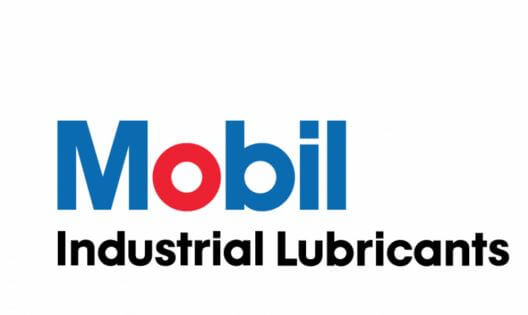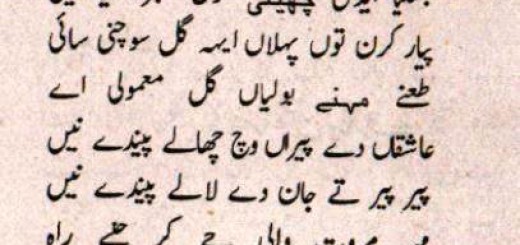Mobil: Analysis Of Suggestions For Coping With Parallel Formal And Informal Systems
Mobil: Analysis Of Suggestions For Coping With Parallel Formal And Informal Systems
There are some set formal procedures to be followed by the whole organization, which are sometimes not followed properly. Following are the final analysis of suggestions placed on how to cope with the parallel formal and informal systems prevailing in the organization.
TIME IN/ TIME OUT
Formal System:
The office timings are from 8:30 a.m. to 5:30 a.m. in the evenings. To keep a check on the employees, an attendance register is maintained at the gate by the guards. In this register the guard is supposed to record the exact timings at which the employees enter and leave the office. A copy of the register is sent to the HR department at Islamabad, that maintains a track of the employees’ attendance record.
Informal System:
On the other hand, employees develop a rapport with the guards and hence they start to favor the employees by not marking them absent, late or leaving early.
Coping With The Problem:
To overcome this problem the management has decided that the HR manager might randomly call the head of department and ask him to personally go on a round and find out who are present and who are not. They are also required to call the attendance register and confirm that there is no proxy for absentees, they also give surprise phone calls to the employees to check whether they are present or not.
Final Recommendations:
It should be made a regular procedure that there are surprise phone call checks to monitor the employee attendance. The head of department should call the attendance register and personally confirm the presence of the employees randomly and report to the HR manager on regular basis (e.g. on a monthly basis).
LUNCH TIMINGS
Formal System:
The lunch timings at Mobil are from 1:00 p.m. to 2:00 p.m., every employee has the right to leave at 1:00 p.m. and has to be back by 2:00 p.m.
Informal System:
It is a common practice at Mobil that employees work throughout the break due to work overload and to meet deadlines. As a result many employees violate the lunch timings by leaving after the lunch break and often take longer than one hour breaks.
Coping With The Problem:
The managers usually overlook such violations in such situations because of the work overload and hectic deadlines.
Final Recommendations:
The rules and regulations of the organization should not be violated under any circumstances, on the other hand they should also be made flexible so as to adapt to various situations. In case of lunch timings, employees working during the regular lunch timings should be allowed to take a one-hour break from 2:30 p.m. to 3:30 p.m.
EMPLOYEE GRIEVANCE COMMITTEE
Formal System:
In the formal system the relationship of the top management with the middle and lower management is quite stiff. But in the informal structure the case is not the same. Coming to main policy of Employee grievances the company has set a grievance committee to handle all employee queries and corporate problems. The committee notes all problems pertaining to the employees call or complaint as per the situation given. The committee sets proper priorities all the interest of the employee of course, on a set time decides a course of action.
Informal System:
At Mobil the top managers also possess a relationship with their subordinates other than the mere working relationship. The CEO and directors of all the departments are very responsive towards the employees’ suggestions and care for their subordinates. In order to understand their relations we asked questions from both of them and found out that there exists an open door policy for the discussions related to work issues. Top management understands the importance of the fact that workers will work up to their full potential only if they think that they are working for their own benefit. So, in order to make them feel important and wanted the top management of this organization maintains an admirable communication level them, provide them leaves without any hesitation if they are badly in need of them.
At times the employee is not satisfied with the committee either because it is not doing enough to solve his/her problem or is taking to long. In any case with the open door policy the company follows the employees may approach the higher management and take his/her case their. The management then primarily takes the decision then lets the grievance committee goes through the final paper work required to handle such situations. Such situation are rare but do occur in which case these situations make up the informal system of the Mobil.
Final Recommendations:
We applaud the open door policy Mobil follows as not many corporations and companies follow not the kind it does. Given the situation though it is of our opinion that the role of the grievance committee be more enhanced and more effective. The employees’ right to approach the management should made part of the formal policy of the company.
SALARY INCREMENT
Formal System:
At Mobil, the salary of each and every employee is to be increased by a minimum of 15% every year, which is basically to adjust for the inflation.
Informal System:
However, this is not the rule of thumb at Mobil. Time frame is not the only criterion. A lot depends upon the performance of the employee. If the performance is good and the supervising manager is completely satisfied, the salary might be raised at any point in time by any amount. The problem that arises from this system is that some employees get a raise above 15% because of their exceptional performance while others might not get a raise of even 15% because of their poor performance.
Coping With The Problem:
The management is now trying to inculcate motivation amongst the employees by making performance as the main criteria for future growth.
Final Recommendations:
Salaries of the employees should be increased every year, in order to adjust for the inflation, and additional increments, rewards and benefits should be awarded only to those who perform well so as to increase motivation in the employees.
LEAVES
Formal System:
At Mobil, every employee is allocated roughly five leaves per month. If an employee does not avail these leaves, they are not carried forward to the next month and are wasted as no compensation is given for them.
Informal System:
However, informally these leaves are carried forward. For example if an employee had been very busy and could not avail his leaves at all, he is rather advised by his supervisor manager to go on a leave. In this manner he can avail his cumulative leaves.
Coping With The Problem:
Managers at Mobil try to overcome this problem by encouraging their subordinates to avail the opportunity if they have worked hard and seem to deserve them.
Final Recommendations:
In some organizations all the accumulated leaves of the employees were granted to them just before their retirement, although this method is no longer prevalent in most of the organizations. Instead employees can be given rewards at the end of the year for their extra efforts. Such a system should be devised by which hard working employees who are not able to avail their leaves be rewarded for their extra efforts.
PROMOTION PROCESS
Formal System:
In every organization there is always a proper appraisal system to evaluate the employees’ performance in order to give them pay raises or promotions. This whole system is absolutely necessary for a company’s success because it provides the employees motivation and encourages them to work even harder for the goal achievement. At Mobil, there is a system of appraising the performance of the employees working there. Usually it is done on the formal basis. The superior personnel fill the evaluation form for the employee working under him. This form covers all the important aspects related to the subordinates work performance like his punctuality, quality and quantity of assigned work done by him, his personal behavior towards the other members of the company and specially towards the people of his own department etc. This form basically is the boss’s report about his subordinates. Then this appraisal form is forwarded to the chief executive officer (the CEO) or the general manager (the GM) of the same organization. The CEO or the GM then, after studying the evaluation form, decides whether the employee deserves a raise or not. If they decide to give him the raise or promotion, a formal letter is issued by the top management and circulated in the organization just to inform other people about their decision because Mobil is one of the most employee friendly organization.
Informal System:
If this above described system fails due to any reason like the absence of the supervisor or the dissatisfaction of the employee by the attitude of his boss towards him then he himself can prepare a note about his performance covering all the related aspects and send a memo to the CEO or the GM. The employees present their report regarding their appraisal in the form of a memo or discuss the main points in a personal meeting with the GM or the CEO so that they could take the final decision. The GM or the CEO then studies the whole case himself, ponder over the memo the employee has sent to him. CEO then takes the last decision that whether employee should be given the raise or not.
According to the Relationship manager of Mobil, if the top management decides not to give the raise to a certain employee, it always communicates the reasons for this decision so that the employee remains satisfied with his job and does not get disheartened. He says that this ease of communication in their organization is the major reason for which Mobil has a very low turnover rate as compared to the other competitive industries.
Final Recommendations:
In the above given analysis we can carefully deduce the fact that the memo sending procedure seems to be more efficient. Therefore we suggest to the company that they eliminate the appraisal form and make the memo system part of the formal corporate policy of the company.
DISTRIBUTION
Formal System:
In order to purchase anything from the suppliers, a form has to be filled and sent to Islamabad, where a counter form is made. Simultaneously all the information sent to Islamabad is verified from the Karachi office. After the verification of all the information, the approval of the finance control manager, shared services manager, human resource manager and the chief executive officer are to be obtained in the form of their signatures. After the approval a letter of credit is to be opened in the name of the supplier. This whole process takes nearly fifteen days to complete, as sometimes the CEO is not in the country or verification takes a lot of time or there are several other delays during the process.
Informal System:
As mentioned above this whole process is very time consuming, the distribution department itself pays for the purchases. If the order amounts up to Rs.10000, the payment is made through the petty cash fund but if the amount is above Rs.10000, the payment is made from the department’s funds (which are actually for miscellaneous expenses).
Coping With The Problem:
The distribution department notifies the finance department afterwards, which then reimburses the whole amount through the formal process. In this way a lot of time is saved.
Similar is the case with the marketing department.
Final Recommendations:
An expense fund for such departments should be created, through which they can pay for their purchases. The approval of only the head of the department should be a necessary requirement to access these funds. Then in order to keep a check on the department’s spending, monthly or weekly reports regarding purchases made during the period should be sent to the head office at Islamabad, which would in return give its feedback on the report.
SALARY DATES
Formal System:
The salaries of the employees are to be credited to their accounts by the twenty-eighth of every month.
Informal System:
On special occasions such as Eid, Christmas and Diwali the salaries of the employees given to them well before the date.
Coping With Such Situations:
Although the salaries are given well before the date, the amount is recorded only on the twenty-eighth of that month.
Final Recommendations:
We believe that this is a very healthy practice carried on at Mobil, and should be continued. We also suggest that the company adopts the informal system on paper as well so that the process can be formalized.
PERFORMANCE APPRAISAL
Formal System:
In any organization, performance appraisal is the major aspect for obtaining the best outcomes of any project. There should always be a check on what is happening in the organization. This helps in not only measuring the employees’ performance and comparing it with set standards but also encourages employees and the whole management to take corrective measures.
At Mobil, work assessment can be made by two ways. On the formal level senior managers are responsible for the work assessments and give the review of the performance. Senior management is the most experienced one so it knows about the requirements of the jobs performed by the employee body. It evaluates them in the light of their own standards.
Informal System:
On the other hand if, due to some reasons like the absence of the senior managers, this above mentioned process fails to proceed in an efficient manner, the employee body itself assess its work and report to the CEO or the GM.
Coping With The Situation:
The technique applied by the senior management to cope with this is that the senior managers review the body’s submitted material itself and then let the body knows about its comments regarding the shortcomings etc. This is what senior managers do when their formal system cease to exist for a certain period of time.
Final Recommendations:
It is vital that the company makes work assessment made by the employees’ body a formal part of its corporate policy as it not only enhances the efficiency and effectiveness in the employees’ tasks but also renders a confidence boost to employees’ autonomy to make decisions. The management should though supervise and monitor their assessment.
APPENDIX
BIBLIOGRAPHY
PRIMARY SOURCES:
- Zeenat Ismail and Ms. Uzma Shabbir, the instructors of the course of “Organizational Behavior”, at the Institute Of Business Administration.
- Zafar Usmani, Chief Executive Officer.
- Osman Durrani, Relationship Manager of Mobil.
- Berkat, Distribution Manager.
- Imran Khalid, Country Manager CVL.
- Furqan H. Khan, ABM Karachi.
SECONDARY SOURCES:
- Monthly Newsletters (Mobil).
- Various employees’ forms. (e.g. appraisal forms, evaluation forms, medical applications etc.)
- ‘Behavior in Organizations’, 6th edition by Jerald Greenberg and Robert A. Baron.
- ‘An Integrated Approach To Business Structure’, 2nd edition by Bruce R. Jewell.
- Lower staff at Mobil.














